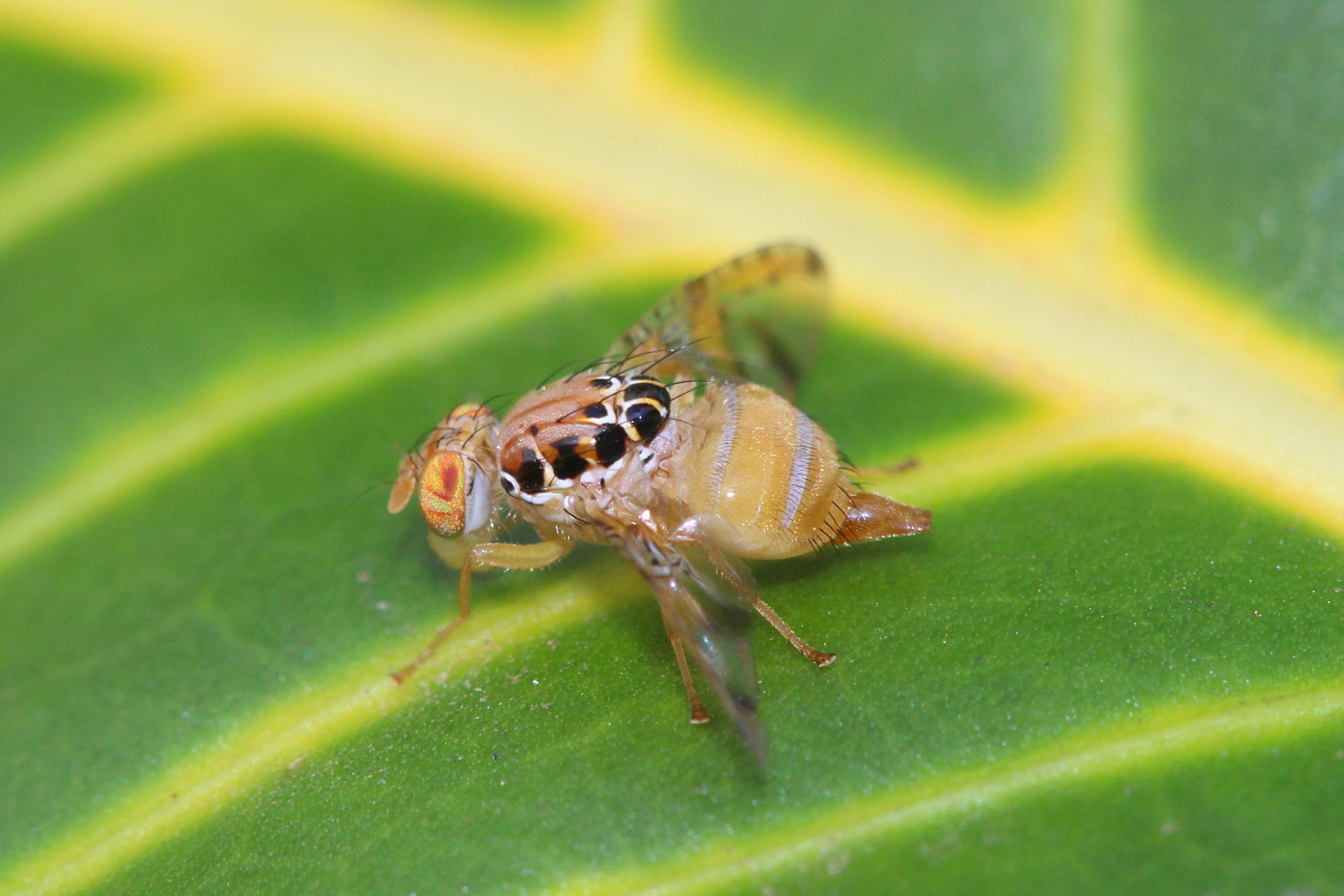
Country: Kenya
Contact the Research Center :
Error: Contact form not found.
Production of fruit offers one of the most important opportunities for income generation & improvement in food and nutritional security. However fruit flies cause damage by puncturing the fruit skin to lay eggs. During laying of eggs the bacteria from intestinal flora of the fly are introduced into the fruit. These bacteria bring about rotting of the tissues surrounding the egg. Over the years icipe seeks to assemble fruit fly management packages based on baiting and male annihilation technique, classical biological control, biopesticides and orchard sanitation for large-scale field application, and minimal use of pesticide in localised bait stations of spot spray.
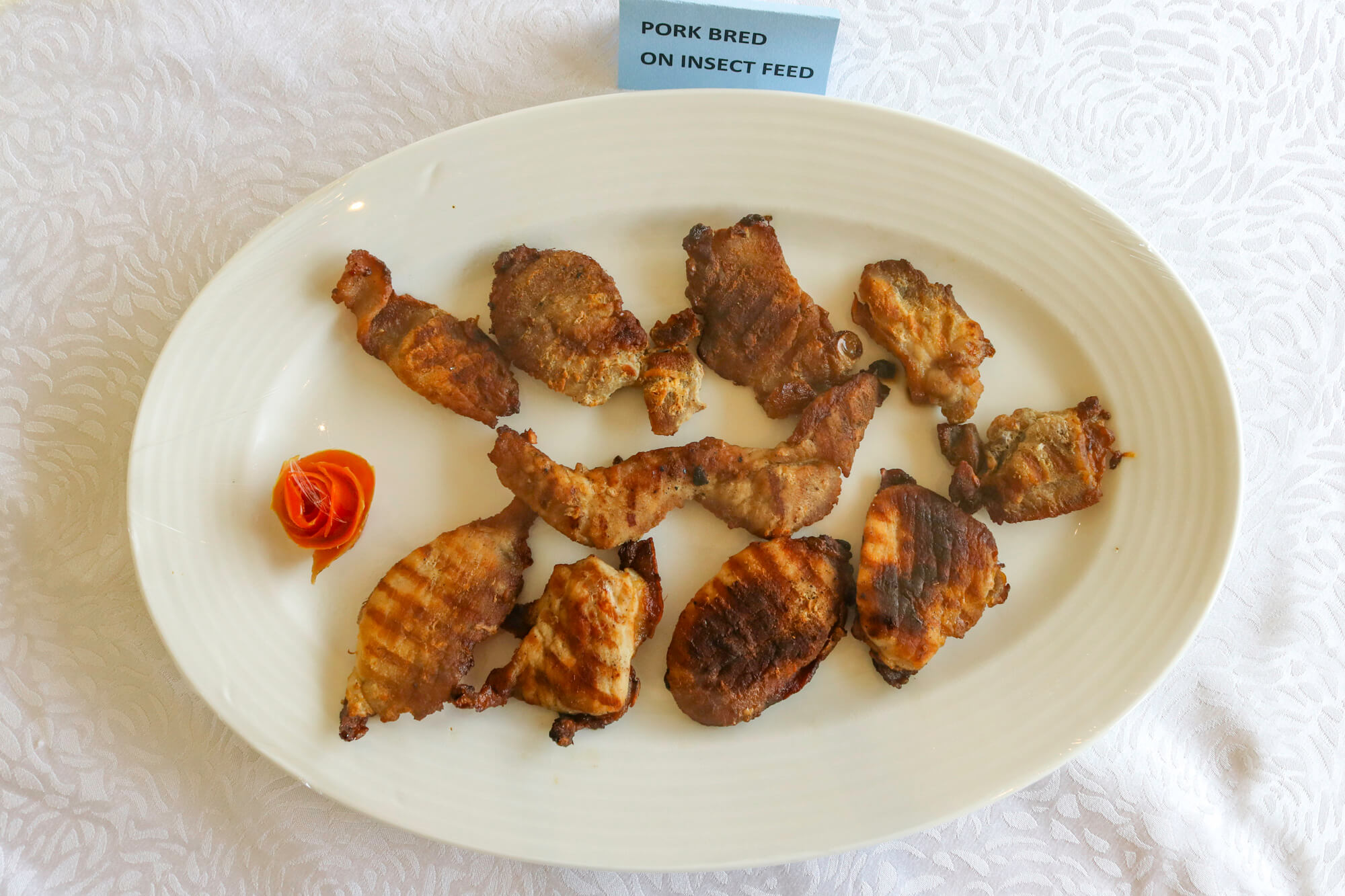
Country: Kenya
Contact the Research Center :
Error: Contact form not found.
Use of insects as alternative sources of food for human consumption and feed for livestock is slowly gaining popularity in the world.
Insects are also valuable sources of minerals and vitamins essential for human development.
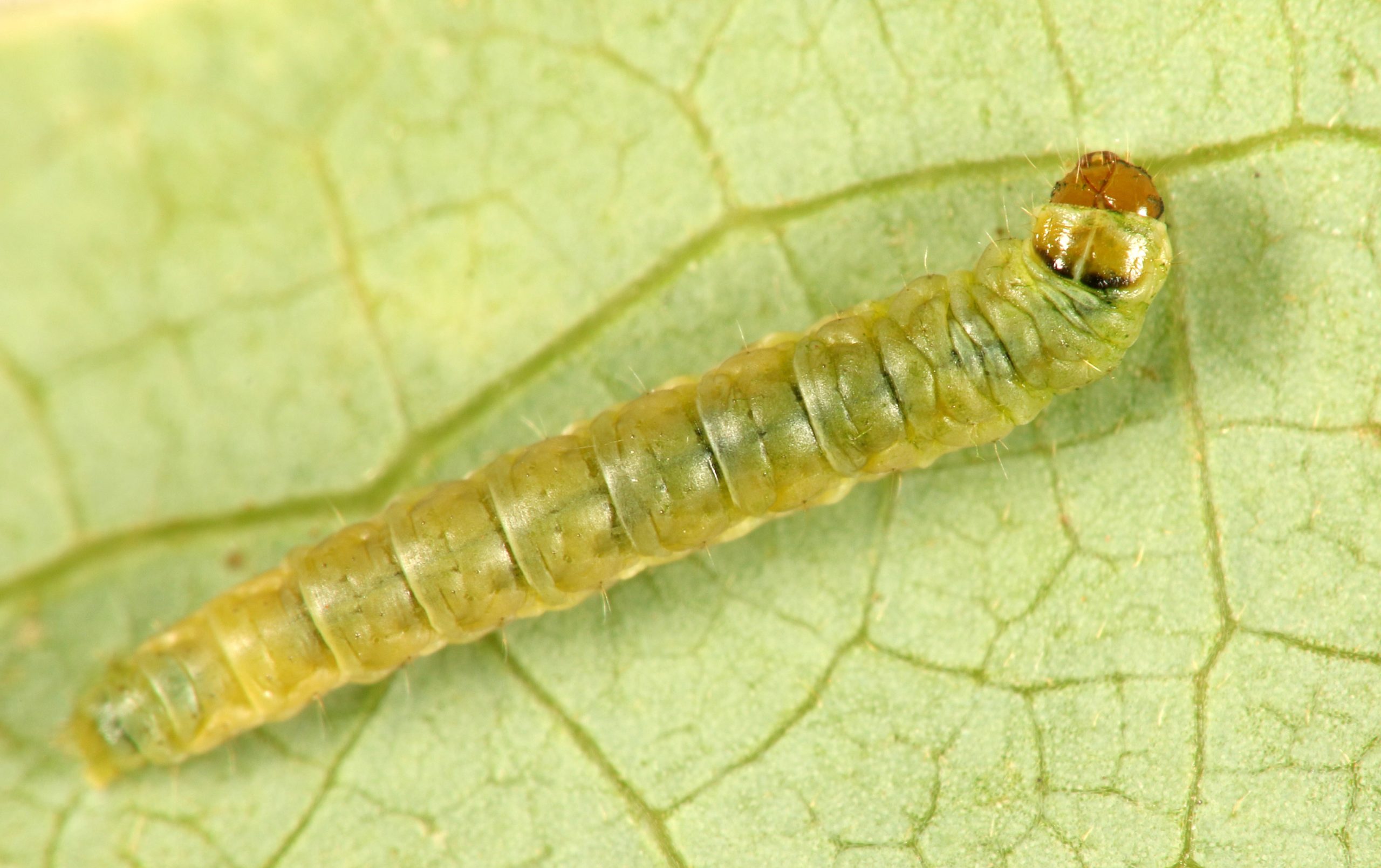
Country: Kenya
Contact the Research Center :
Error: Contact form not found.
Tomato production is constrained by numerous biotic and abiotic factors. Among the former are arthropod pests, of which, Tuta absoluta is the key devastating pest. Infestation by the pest causes yield losses of up to 100%, jeopardizing the livelihood of millions of growers and other beneficiaries along the crop value chain. Alarmed by rampant spread and the destructive nature of this pest, growers in Kenya and Uganda have resorted to indiscriminate widespread use of broad-spectrum insecticides which is unsustainable with enormous health hazards to producers, consumers and the environment. This project proposes to implement an eco-friendly IPM approach for this pest in Kenya and Uganda that is based on mass trapping and field/ green-house sanitation as well as carry basic research of biological control agents (Dolichogenidea gelechiidivoris and fungal-based biopesticides) to be incorporated in the IPM package.
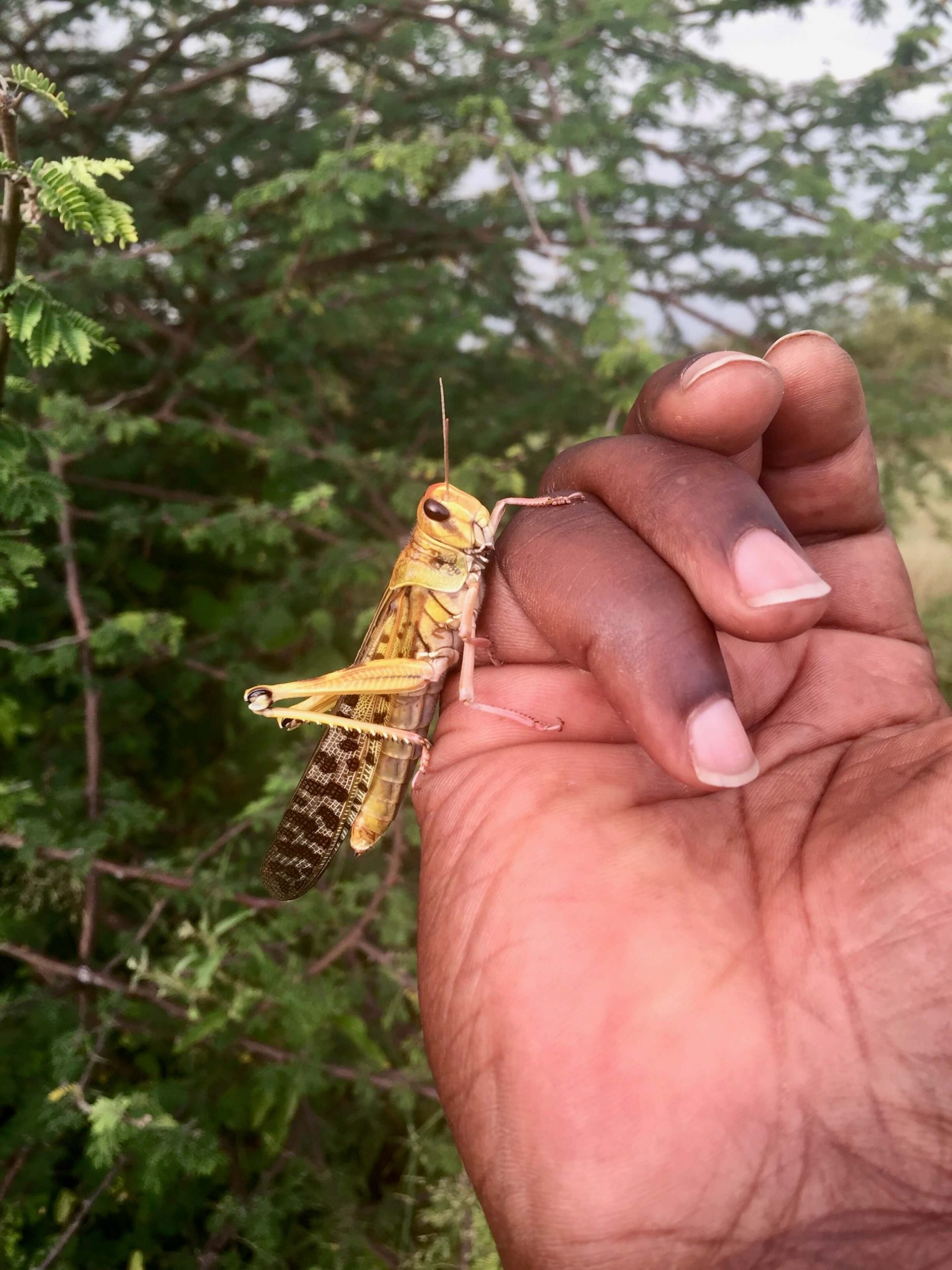
Country: Kenya
Contact the Research Center :
Error: Contact form not found.
For many years, locusts, a dozen species of grasshoppers, have caused untold anguish to mankind.The mostly-used control methods for locust outbreaks, based on the use of synthetic insecticides, are extremely expensive. In addition, the large amounts of non-specific toxicants that are sprayed over affected areas destroy the environment and threatening biodiversity.icipe’s overall objective has been to develop components of a preventive, eco-friendly and cost-effective locust control system, based on bio-rational, semiochemical-based control tools and tactics.
Desert locust, Schistocerca gregaria swarm on shrub tree. Photo courtesy of Saliou Niassy, icipe.
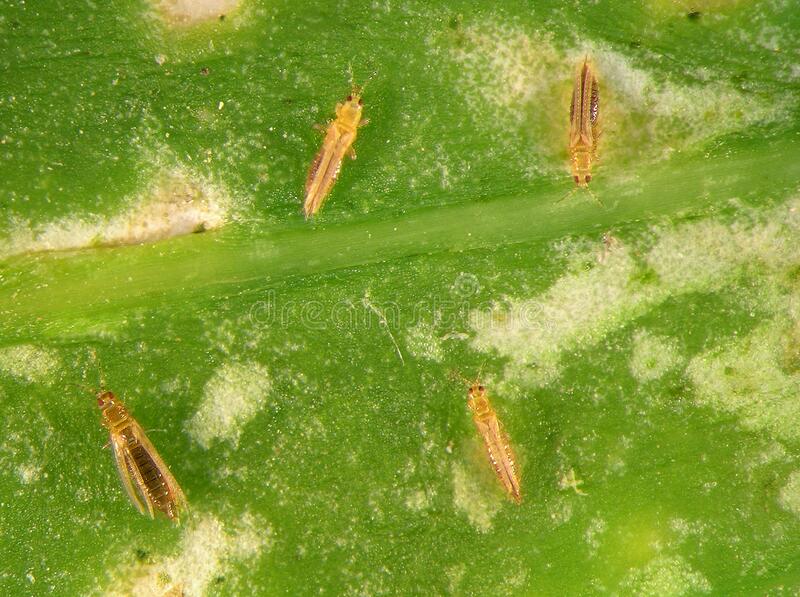
Country: Kenya
Contact the Research Center :
Error: Contact form not found.
Thrips are sucking insects that can cause some damage to plants thus threatening the production of legumes in the continent, causing yield losses of 20-100%. To control the pest, many smallholder farmers over-rely on chemical insecticides, compromising the safety of the yield due to unacceptably high levels of pesticide residues.Previous research by icipe, Keele University and Plant Research International, The Netherlands identified special chemicals (pheromones) released by male bean flower thrips, which can attract males and female species of the pest. Field assessments indicated that these pheromones can enhance the ability of traps to capture thrips by over 130%. Such behaviour modifying pheromones can be integrated with other thrips management options, such as biopesticides.
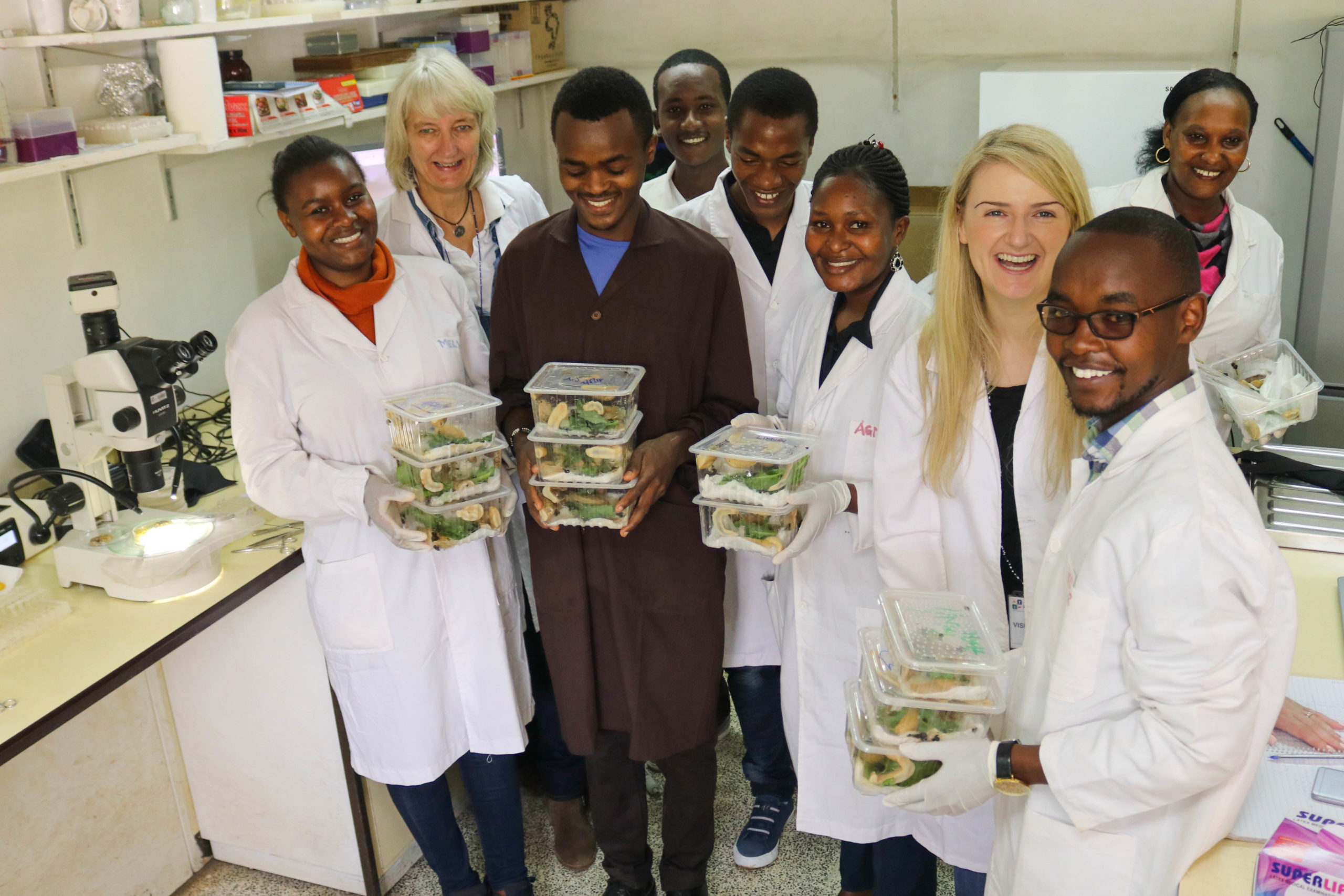
Country: Kenya
Contact the Research Center :
Error: Contact form not found.
Beneficial nematodes such as the entomopathogenic nematodes have a unique life cycle involving symbiotic bacteria that are pathogenic to host insects. These nematodes are successfully mass produced and available in many countries for biological control of target insect pests. In SSA there is a need to enhance research and use of these nematodes in biological control of susceptible insect pests.
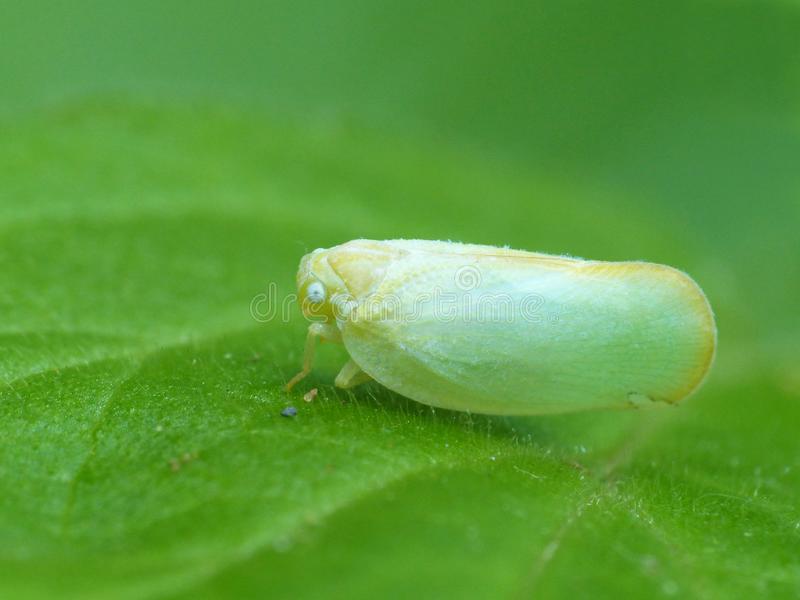
Country: Kenya
Contact the Research Center :
Error: Contact form not found.
Bemisia tabaci, causes severe damage to a wide range of host plants by sucking sap from the leaves. Genetic resistance was identified as the most important component of an IPM programme, followed by phytosanitary, cultural and legal measures. Biological control is only effective in cropping systems with minimal or rational use of insecticides, and should be considered only as a complementary IPM strategy.
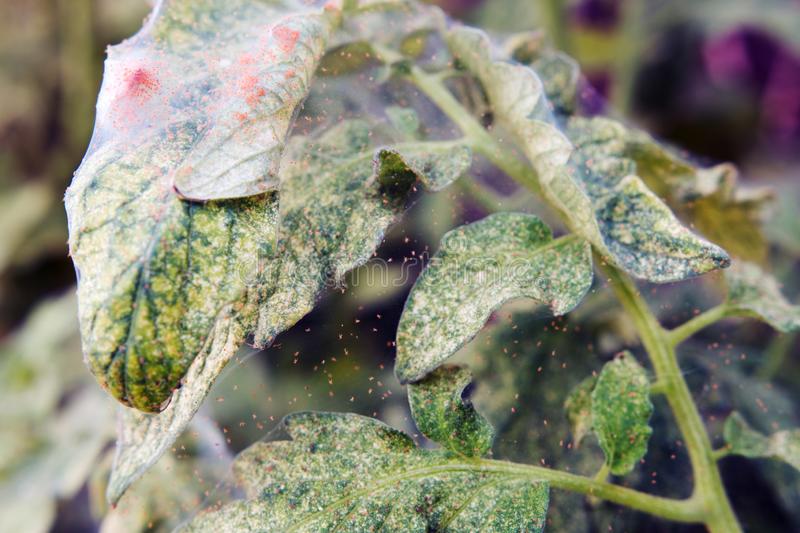
Country: Kenya
Contact the Research Center :
Error: Contact form not found.
Generally, spider mites prefer the undersides of leaves, but severe infestation will occur on both leaf surfaces as well as on the stems and fruits. They suck the sap of plant tissues. Damage by spider mites on beans is most serious in hot and dry conditions. Because they multiply very fast, they are able to destroy plants within a short period of time. icipe researchers report that a species of African nightshade has over time developed a sweet smelling mixture of compounds in its leaves thus when the mites reach the leaf’s surface, the “small hairs” on the leaf trap the pests, hindering their further movement. Additionally, the disturbance causes cracking of the glandular tips where they release secretions that contain foul smelling chemicals that prevent the pests from laying eggs.
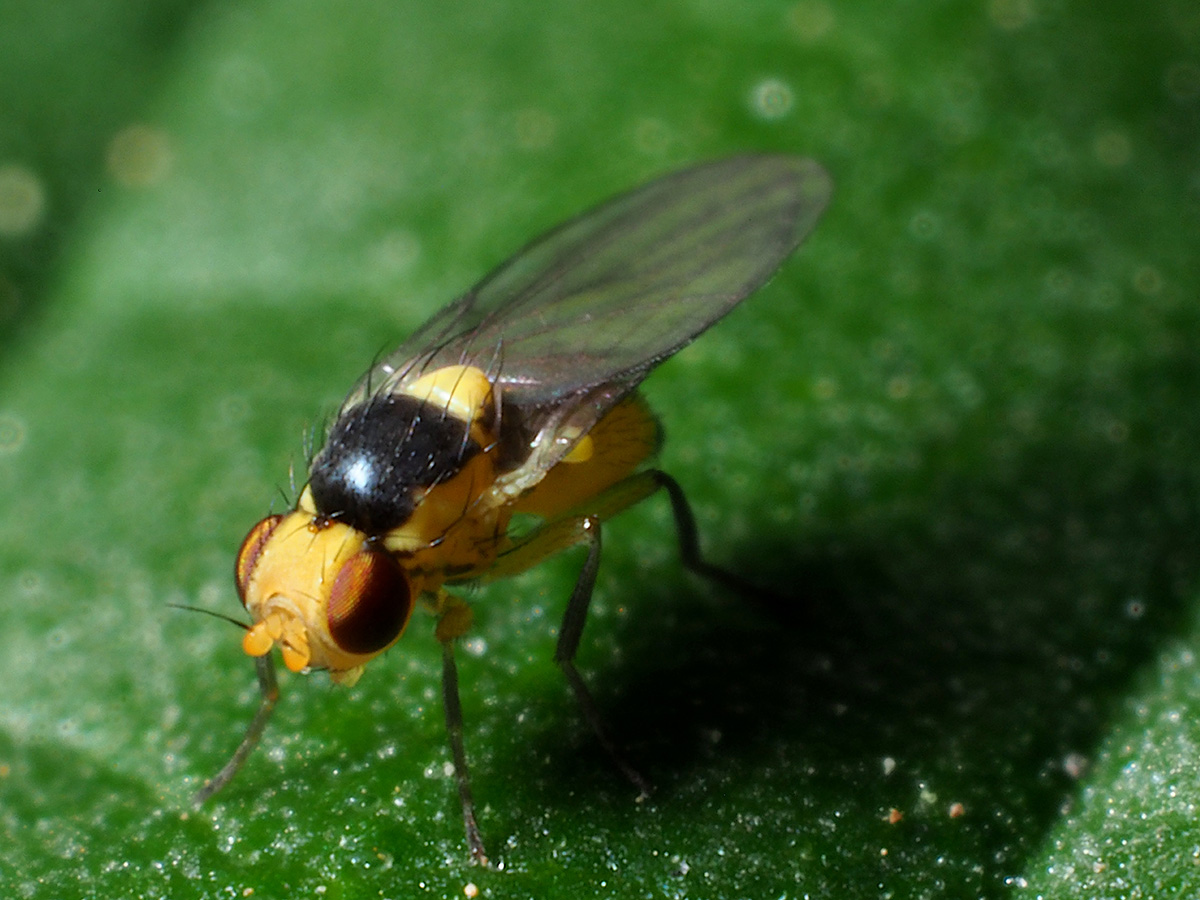
Country: Kenya
Contact the Research Center :
Error: Contact form not found.
Leaf miners are the larvae of the dipterous insect of the genus Liriomyza. The most common species are the tomato leaf miner Liriomyza bryoniae, the serpentine leaf miner L. trifolii or the pea leaf miner L. huidobrensis, mines in the leaves of your vegetable or ornamental crops.icipe’s biological control tactics include the use of entomopathogenic fungi and fungal endophytes (F3ST1, G1LU3, S4SU1, ICIPE 279), and use of neem-based pesticides.
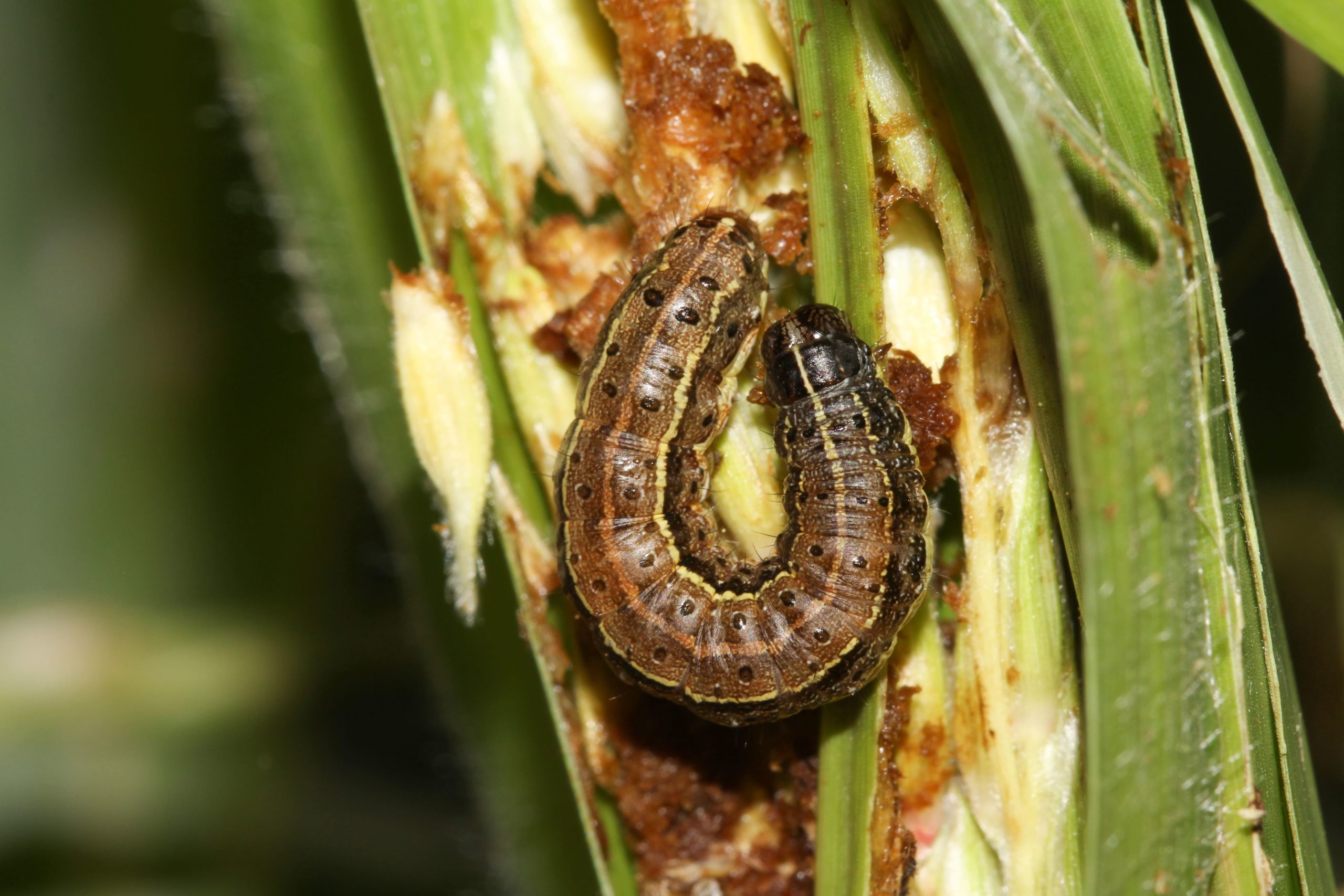
Country: Kenya
Contact the Research Center :
Error: Contact form not found.
Fall armyworm (Spodoptera frugiperda) is an insect pest which feeds on more than 80 varieties of crops including maize, sorghum, rice, millet, wheat, sugarcane and vegetables, but primarily affects maize. FAW larvae attacks maize plants during all stages., icipe has identified other new and highly potent strains (icipe 41, icipe 655, icipe 20) that are effective against various life stages of the fall armyworm.Moreover, the Centre has established that the biopesticides can be used in combination with other fall armyworm management options like the push-pull technology, pheromone traps, attractants and the pest’s natural enemies.

Country: Kenya
Contact the Research Center :
Error: Contact form not found.
Cowpea aphids are shiny black with white and black legs. They inject a powerful toxin into the plant while feeding and, when their numbers are high, this can stunt or even kill plants. While feeding, this aphid produces a considerable amount of honeydew upon which sooty mold can grow. Icipe research investigates the use of entomopathogenic fungi as biopesticide and also the use of parasitic wasps.

Country: Kenya
Contact the Research Center :
Error: Contact form not found.
Throughout the world diamondback moth is considered the main insect pest of brassica crops, particularly cabbages, kales, broccoli and cauliflowers. The economic impact of diamondback moths is difficult to assess since it occurs in diverse small scale and large-scale production areas, but it has been known to completely destroy cabbage and kale crops. It is considered a major pest in all countries of the eastern and southern African region.Using biological control methods (such as conservation, augmentation or importation biological control using natural enemies—predators, parasitoids, pathogens and antagonists), icipe works on controlling and managing the diamondback moth infestation in crucifier farming
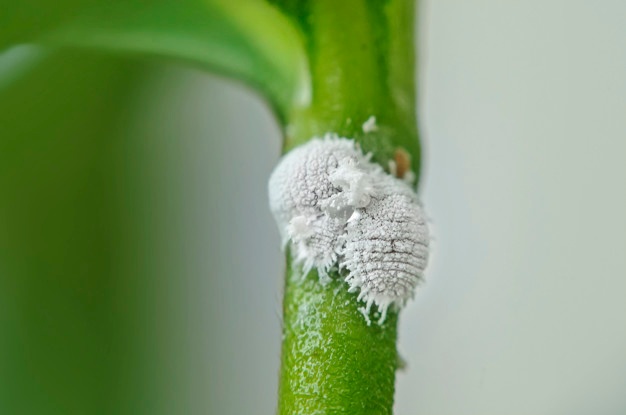
Country: Kenya
Contact the Research Center :
Error: Contact form not found.
Mealybugs damage plants by sucking sap from roots, tender leaves, petioles and fruit. They excrete honeydew on which sooty mould develops. Severely infested leaves turn yellow and gradually dry. Severe attack can result in shedding of leaves and inflorescence, reduced fruit setting and shedding of young fruit. The foliage and fruit may become covered with sticky honeydew, which serves as a medium for the growth of sooty moulds.Icipe’s fungus-based biopesticide, has been commercialised as Campaign and has proven effective against mealybugs. Furthermore, a wide range of natural enemies, including the parasitic wasps (Anagyrus spp.) and predatory mealybug ladybird (Cryptolaemus montrouzieri) could be used to control the mealybugs.
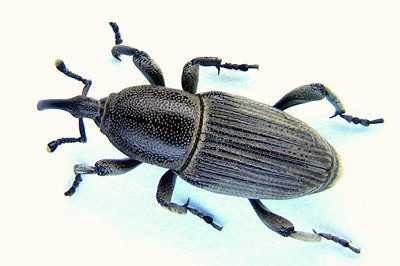
Country: Kenya
Contact the Research Center :
Error: Contact form not found.
They Grub feed making irregular tunnels in the corm and rootstock. Tunnels are roughly circular and can reach up to about 8 mm in diameter. The corm can be riddled with tunnels, which promotes fungal infection and decay reducing it to a black mass of rotten tissue. Injury to the corm can interfere with root initiation and sap flow in the plant, as a result the leaves turn yellow, wither and die prematurely.Application of neem powder can control the main banana pests; however, icipe research suggests that other beneficial organisms (entomopathogenic nematodes) can also suppress the pest.

